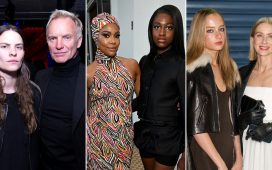“Dating in Place” lets viewers listen in as pairs test out their chemistry on first dates via Zoom.
What does the socially distant reality of the coronavirus pandemic mean for that chemistry-dependent ritual, the first date? In the past months, as self-quarantine edicts and business closures have limited people’s ability to meet with new romantic prospects in person, we have seen a rise of purely virtual dating, bringing assignations that would have once taken place at a café or a restaurant onto video-conferencing platforms such as Zoom. This transformation of courting rituals has led, too, to a minor but still resonant loss for those of us who have, until recently, thrilled to eavesdrop on others’ face-to-face dates. No longer are we able to surreptitiously listen in, from a nearby table, on prospective lovers negotiating their potential compatibility in real time. “I’ve always loved overhearing people on dates. The dynamics of it are fascinating,” the filmmaker Simon Mendes told me. “There’s simultaneously enormous possibility and also the potential for the encounter to lead to absolutely nothing. It’s a vulnerable moment.”
In pre-COVID days, Mendes had considered capturing the audio from first dates and creating a film around it, but the new dating landscape that the coronavirus has ushered in has made him realize that he might be able to explore his fascination by new means. He had also gone on a virtual date himself, and found that there was something particular to the form that he wanted to dig into. “Because there was no pressure of actual physical engagement, I found that I could really get to know the person,” he told me. The format got rid of “the usual anxiety.” He posted ads on Craigslist and Facebook, offering participants fifty dollars if they would go on a Zoom date, record it, and allow an edited version to appear in a short documentary, which you can watch above. “I told people they could record dates that they had planned anyway, or that I was willing to match them with a partner,” Mendes said. “And I found it touching how many people were actually hoping to be set up. In the end, of the six couples I included, I set up two, matching up people who responded to the ad, and four brought in their own partners.” All of the dates, save one, were first-time encounters. (The outlier couple had met in real life once before, prior to the pandemic.) Once the encounters were edited, what resulted is “Dating in Place,” a ten-minute ode to the affecting, awkward, and surprisingly real attempts to find love virtually during quarantine.
Watching “Dating in Place” brings to mind the voyeuristic pleasures of recent streaming reality-TV fare such as “Love Is Blind” or “Dating Around.” Like the couples featured on those dating shows, the couples in “Dating in Place” have agreed to share the kind of intimate encounters that are usually observed by an outside viewer only in passing, if at all, which can’t help but give the project a hint of prurience. There are some cringeworthy moments—as when one man offers his date a bouquet of flowers onscreen, or when a woman asks her date questions from a psychological test—but there is no sense of exploitative tension here: the relatively long, slightly meandering takes give the video a slight cinéma-vérité quality. There is also something gentle and exploratory in Mendes’s gaze, and his subjects reveal themselves in ways that feel unrushed and authentic. When one woman describes the frightening daily reality of her work at a hospital, her date goes from smiling to serious. “It’s mind-bending to me,” he says. Watching the video, you get the rare sense of observing people as they interact unhurriedly and naturally, as two curious participants in the world, even if it’s clear to both, and also to the observer, that a romantic match isn’t in the cards. “In my own experience, I’ve found that, since the pandemic, people are messaging more and seem more open,” Mendes told me. “Talking on dating apps and going on virtual dates is serving as a form of connection, and hope for what might come after.”








